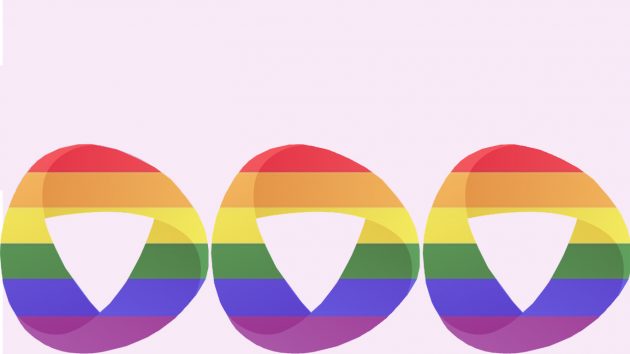

LGBTQ+: What we’re doing to ensure our services are inclusive to all
At London Gynaecology, we are committed to offering excellent healthcare to all our patients regardless of how they identify or their sexual orientation. We are aware of significant health inequalities and specific barriers to services and support experienced by lesbian/gay, bisexual, transgender, queer and questioning and the LGBTQ+ community. This can occur directly through lack of knowledge and understanding and indirectly through marginalisation and social isolation.
It is well known that people within the LGBTQ+ community may have concerns that they aren’t immediately comfortable talking about or are not aware of and this can lead to poorer health outcomes. We also acknowledge that this diverse population also includes people from different ethnicities, faith groups and with disabilities.
A safe and reassuring environment from two practice locations
We offer a safe and reassuring environment; you will be treated with the dignity and respect you deserve at every stage of the patient pathway. We will consider individual patients’ needs when making any decisions about investigations and treatment. We offer urgent and on the day appointments and have access to experienced and expert health care professionals; patients have the option to see either a male or female gynaecologist.
Confidentiality
At London Gynaecology, we treat all information with utmost confidence. We acknowledge people from the LGBTQ+ community may wish to be able to disclose and openly discuss their sexual orientation and not have it recorded in their notes, which is acceptable. Please discuss this at the beginning of your consultation.
Inclusive language
We aim to use inclusive language with all patients – e.g. using correct pronouns and salutations, and not assuming the gender of partner(s). Our staff will endeavour to avoid making assumptions or asking questions that may be deemed inappropriate.
Discrimination
London Gynaecology provides equality of services and care to everyone, regardless of people’s age, disability, gender, gender identity, race, religion or belief or sexual orientation.
We will seek and prevent discrimination of LGBTQ+ patients at our clinics and we have zero tolerance for racist or homophobic language. We will encourage patients to report it if they encounter poor treatment so we that we can make any necessary improvements in our practices. Should you wish to provide feedback, please raise it immediately at the point of service or contact us directly at [email protected], detailing your experience. We are committed to listening carefully and responding to complaints and feedback, acknowledging and rectify any mistakes, and so that we can make our service excellent for all.
What are some of the common health care issues experienced by LGBTQ+ people?
Sexually transmitted infections:
Sexual relationship between two women is not without some risks and some women who now identify as lesbian or bisexual may have had sex with a man at some point in their life. This puts them at the risk of sexually transmitted infections (STIs). STI’s can be transmitted via blood or vaginal fluids transferred during sex or even contact alone (such as herpes). The only way is to ensure that both partners have been fully tested and have had no other sexual contact (with women or men) since.
For more information about safe sex, please click here:
Bacterial vaginosis and thrush:
- Bacterial vaginosis (BV) occurs when there is a change in vaginal acidity which causes overgrowth of mixed vaginal bacteria. BV can be triggered by the use of perfumed soaps/bubble bath and vaginal douching.
- Thrush is caused by an overgrowth of yeast called candida.
These infections can be transmitted between women through touching and sharing sex toys (without using condoms).
HPV, genital warts and cervical cancer:
Lower participation in regular screening may increase risk of genital warts and cervical cancer. These conditions are caused by persistence of HPV infection which can be sexually acquired via skin contact such as rubbing vulvas together. Smear (HPV) testing is essential for all people with a cervix. Some queer people may be unaware they still need smears even if they don’t sleep with someone with a penis. Smears are important to transmen with cervices.
Other health risks that have been reported to be increased in people from LGBTQ+ groups:
- Depression, stress and anxiety
- Smoking, recreational drug use, alcohol with hazardous drinking patterns and weight issues can have effect on the liver and with possible impact on cardiovascular health
- Increased suicide risk
- Increased risk of injury by domestic abuse
- Asthma
- Musculoskeletal issues
- Long term neurological problems
- Increased incidence of some types of cancer: mesothelioma, oro-pharyngeal cancer, stomach cancer and endometrial cancer
We have listed links to further information that you may found useful:
Stonewall: Stonewall is the UK’s largest campaigning and lobbying group on LGB issues. Website: www.stonewall.org.uk Telephone: 0800 502 020
The Lesbian and Gay Foundation (LGF) provide a wide range of support services to lesbian, gay and bisexual people.
Website: lgbt.foundation/how-we-can-help-you Telephone: 0845 3 30 30 30
MindOut: LGBTQ Mental health Service
https://mindout.org.uk/resources/ Telephone: 01273 234839
The Gender Trust: It is the UK’s largest charity for people with gender identity issues.
Website: www.gendertrust.org.uk Telephone: 0845 231 0505
FFLAG Families and Friends of Lesbians and Gays (FFLAG) is a national voluntary organisation supporting the parents and families of LGB people.
Website: www.fflag.org.uk Telephone: 0845 652 0311
NHS England: Menu of evidence-based interventions and approaches for addressing and reducing health inequalities



